The unprotected watchdog
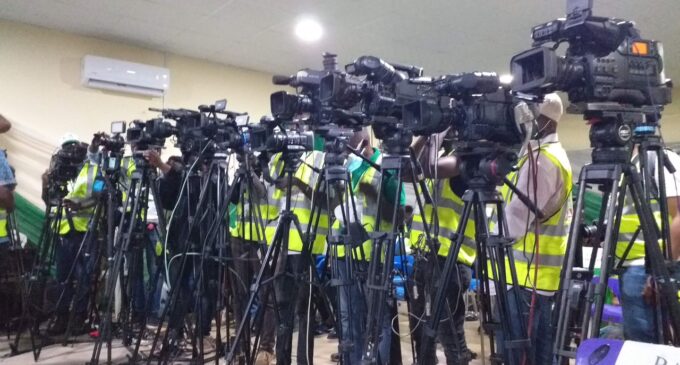
BY MACK OGBAMOSA
A vibrant media is one of the pillars of a viable democracy but there cannot be a vibrant media where the safety of media practitioners, who act as watchdogs of the society, is not protected. It is a well-known fact that journalists face a myriad of challenges in the course of performing their duties, especially in developing democracies like Nigeria. These challenges include harassment, intimidation, arrests, kidnapping, and health hazards including death.
As the world marks the tenth anniversary of the United Nations (UN) Plan of Action on the Safety of Journalists and the Issue of Impunity this month. It is coordinated and marked on November 2nd every year by the United Nations Educational, Scientific and Cultural Organisation (UNESCO), there is a need to examine some of the laws, policies and practices that inhibit the safety of journalists in Nigeria.
Constitutional provisions for the safety of journalists
There is no doubt that we have some constitutional provisions for the safety of journalists but how effective are these provisions?
There are three provisions in the 1999 constitution (as amended) that relate to the safety of workers/ journalists. Two are under Chapter II Fundamental Objectives and Directive Principles of State Policy while the third is under Chapter IV Fundamental Rights.
One is a general provision in Section 17.3(c) for all workers. The other two relate directly to the media. They are in sections 22 and 39.
Section 17. 3(c) states that: “The state shall direct its policy towards ensuring that the health, safety and welfare of all persons in employment are safeguarded and not endangered or abused”.
Section 22 under obligations of the mass media states: “The press, radio, television and other agencies of the mass media shall at all times be free to uphold the fundamental objectives in this chapter and uphold the responsibility and accountability of the government to the people”.
Section 39 (1) Right to freedom of expression and the press states: “Every person shall be entitled to freedom of expression, including freedom to hold opinions and to receive and impart ideas and information without interference. (2) Without prejudice to the generality of sub-section (1) of this section, every person shall be entitled to own, establish and operate any medium for the dissemination of information, ideas and opinions: Provided that no person other than the Government of the Federation or of a State or any other person or body authorised by the President on the fulfilment of the conditions laid down by an Act of the National Assembly shall own, establish or operate a television or wireless broadcasting station for any purpose whatsoever “.
Apart from these constitutional provisions, there is the Freedom of Information Act. Its essence is to make public records and information readily available to the public as obtained in other democracies.
It protects public officers from adverse consequences for releasing information but not the journalist who publishes the information.
Limitations of these provisions
The first two of these provisions ( sections 17 and 22) are under Fundamental Objectives and Directive Principles of State Policy and therefore not enforceable.
Even though Section 22 of the constitution gave responsibility to the media to monitor governance and hold the government accountable to the people, it did not empower the media by ensuring that it can actually operate in freedom. The freedom given here is not enforceable.
This is a result of the provision in Section 6 .6(c) of the same constitution which bars the courts from entertaining any matter in respect of the justiciability of the enforceability of Chapter II.
Section 6.6(c) states: “The judicial powers vested in accordance with the foregoing provisions of this section- Shall not, except as otherwise provided by this Constitution, extend to any issue or question as to whether any act or omission by any authority or person or as to whether any law or judicial decision is in conformity with the Fundamental Objectives and Directive Principles of State Policy set out in Chapter II of this Constitution”.
Contrary to popular belief, the provision for freedom of expression and the press in section 39 of the constitution only guarantees freedom of expression, not freedom of the media practitioner to perform his or her duties. Freedom of the press here relates only to the freedom to establish and own media houses.
This is unlike the United States’ constitution which expressly recognises freedom of the press in its First Amendment.
In the Senate vs Tony Momoh (1983), the appeal court held that journalists have no special freedom other than that of the ordinary citizen and that the press is not the fourth arm of government. It also held that journalists can be compelled to reveal their sources of information in certain circumstances.
There are also limitations to the right to freedom of expression in Sections 39(3) and 45 of the constitution.
Section 39(3) states: “Nothing in this section shall invalidate any law that is reasonably justifiable in a democratic society-
(a) for the purpose of preventing the disclosure, of information received in confidence, maintaining the authority and independence of courts or regulating telephony, wireless broadcasting, television or the exhibition of cinematograph films; or
(b) Imposing restrictions upon persons holding office under the Government of the Federation or of a State, members of the armed forces of the Federation or members of the Nigeria Police Force or other Government security services or agencies established by law“.
Section 45: Restriction on and derogation from fundamental rights states that: “Nothing in sections 37,38,39,40 and 41 of this Constitution shall invalidate any law that is reasonably justifiable in a democratic society-
(a) In the interest of defence, public safety, public order, public morality or public health; or
(b) For the purpose of protecting the rights and freedom of other persons“.
Limitations of freedom of information act
The freedom of information act also has its limitations. Except for the imposition of obligations on the media, journalists are not protected with any special rights or privileges apart from the right to freedom of expression
This apart, journalists are usually denied information by public officers and in many cases, public officers claim ignorance of the existence of the act.
Other laws/policies militating against the safety of journalists
Other laws and policies militating against the safety of journalists include:
- Terrorism (Prohibition and Prevention) Act, 2022: This act criminalises incitement to commit terrorism through the internet or any electronic media or through the use of printed materials or through the dissemination of terrorist information. It did not however, define the word: incitement.
- Cybercrime (Prohibition and Prevention) Act, 2015: Section 24(1) of the Cybercrime Act, states: “A person who knowingly or intentionally sends a message or other matter by means of computer systems or network that is grossly offensive, pornographic or of an indecent, obscene or menacing character or causes any such message or matter to be sent, or he knows to be false, for the purpose of causing annoyance, inconvenience danger, obstruction, insult, injury, criminal intimidation, enmity, hatred, ill will or needless anxiety to another or causes such a message to be sent, commits an offence under this Act and is liable on conviction to a fine of not more than N7, 000,000.00 or imprisonment for a term, not more than three years or both”. These provisions violate freedom of expression.
- Defamation laws and other challenges: Aside from these, the journalist still has to face the challenges of coping with the usually familiar laws of defamation, a very poor working environment, lack of proper regulation as well as no respect for the rule of law.
- Unfavourable working environment: Most practising journalists in Nigeria work in a very unfavourable environment. Except for those employed in the public sector, salaries and allowances, where paid are very meagre and irregular. The conditions of service are very poor; there is neither insurance coverage for journalists nor retirement benefits. How can journalists work safely under these circumstances?
- Lack of proper regulation of the media: The media profession in Nigeria is not well regulated. It is more like an all-comers profession as there are no strict rules guiding entry into and practice of the profession. The advent of social media has made the situation more chaotic and confusing.
- No respect for the rule of law: Nigeria is a country where the rule of law is not respected. We are a country with laws, not a country of laws. The lawmakers and law enforcers are usually the first the break the law with impunity. With the high level of corruption in the country, it is generally believed that it is only the poor and downtrodden who are subjected to punishment for violations of our laws.
The way forward
- Amend the constitutional provisions on media: To safeguard the safety of journalists, there is a need to amend sections of the constitution that relate to the mass media. Section 22 gives obligations to the mass media to monitor governance and hold government accountable to the people must be made truly obligatory. Right now, the role given to the mass media is not enforceable. Section 39(1) which provides for freedom of expression and the press should be amended to give freedom to mass media practitioners to practise not just freedom of ownership of the media.
- Review terrorism and cybercrime acts: As noted above, some of the provisions of the terrorism and cybercrime acts pose serious dangers to the safety of journalists. There is a need to review the acts in order to expunge those provisions that criminalise freedom of expression and the press.
- Create a conducive working environment for journalists: It is a well-known fact that journalists work under terrible conditions of service. There is neither insurance coverage nor retirement benefits. This situation should be reversed to ensure the safety of journalists.
- Proper regulation of the media: There is a need to ensure proper regulation of professional journalism to enhance the status of the profession and the safety of journalists.
- Support and collaborate with UNESCO and other stakeholders: There cannot be safety for journalists when journalists themselves pay lukewarm attention to issues that concern their welfare. Journalists must continue to support and collaborate with UNESCO, safety groups, non-governmental organisations like the Media Centre for Promotion of Safety Awareness and other stakeholders to create a safer environment for the practice of the profession.
- Enforcement of the rule of law: Above all, we must ensure that the country is governed under the rule of law.
Unless and until these issues are effectively tackled, the Nigerian journalist will continue to suffer as a watchdog without protection.
Ogbamosa, a legal practitioner/communications consultant, can be reached via [email protected].
Views expressed by contributors are strictly personal and not of TheCable.






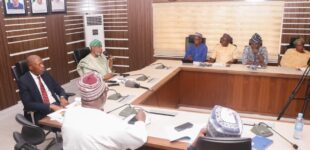
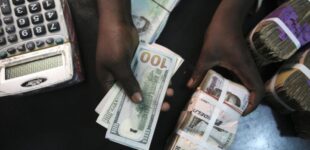

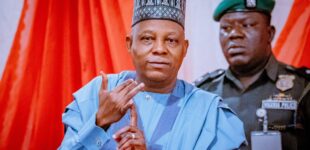

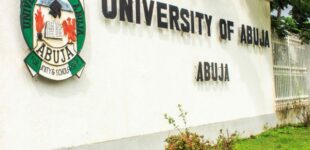



There are no comments at the moment, do you want to add one?
Write a comment